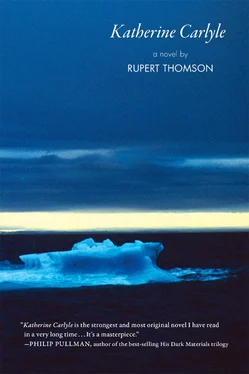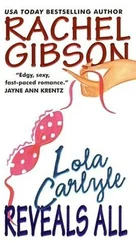“I haven’t been to bed,” he says.
“Is it all right,” I say, “me turning up like this?”
What I like about Cheadle is the fact that there’s no longing in his eyes when he sees me. My looks are an irrelevance. He treats me as if I’m as hard-bitten and disillusioned as he is.
“I’ll give you a tour,” he says.
He shows me into a vast bare room with steel-roll doors at the far end. Rusting tools and faded girlie calendars hang on the brick walls. The lumpy armchairs and couches were probably salvaged from the street. The concrete floor is stained with oil.
“This place used to be a garage,” Cheadle tells me. “It’s great for parties.” He indicates the deep trench in the middle of the room where mechanics would once have worked on the undersides of cars. “We call it The Grave. People dance down there.”
He guides me along down a corridor lit by a single white fluorescent tube. One side is piled high with cardboard boxes. There are laptops, toasters, scanners, shredders, vacuum cleaners, kitchen blenders.
“Import-export,” I say, half to myself.
Cheadle points to a door painted to resemble camouflage. “Tanzi’s asleep in there. She works nights.”
“Tanzi?”
“My girlfriend.”
We reach two large rooms, one painted green, the other white.
“I just made coffee,” he says.
I sit at the Formica table and he pours me a cup from a battered metal pot. I help myself to sugar. He lights a thin cigar. Running along the back wall at head height is a horizontal panel of frosted glass. The weak sun that filters through turns his cigar smoke blue.
“So,” he says at last. “Had enough of the concert guy, did we?”
“He was a stepping-stone.”
Cheadle rolls the tip of his cigar against the edge of the ashtray. “And I’m not?”
I don’t know how to answer that.
“It’s all right,” he says. “I don’t give a jack.”
I sip my coffee. “This is good.”
After about half an hour, the street door buzzes. Cheadle heaves a sigh, then goes to answer it. He returns with a tall spindly man who has a zigzag of lightning tattooed below one ear. A second tattoo — the English word OUTSIDER — shows just above his T-shirt, at the base of his neck. He has a pinched face, rockabilly hair.
“Echo, this is Misty,” Cheadle says by way of introduction.
Echo grunts, then leans his shoulder blades against the kitchen wall, legs crossed at the ankles. His black leather jacket creaks. There’s dirt under his fingernails.
Cheadle opens a storage jar and takes out a packet wrapped in silver foil. Echo gives Cheadle two crumpled twenty-euro notes. Cheadle hands him the packet.
Echo glances to his right, up the corridor.
“Not here,” Cheadle says.
When Echo has gone, Cheadle leans back in his chair and tucks the money into his trouser pocket. “You disapprove?” he says.
“I didn’t say anything.”
“I saw your face.”
I should be more like Klaus’s expensive painting, a smooth exterior, the truth buried layers deep.
“It’s no concern of mine,” I say. “Is there any coffee left?”
Cheadle pushes the dented pot across the table.
“Echo,” I say. “What kind of name is that?”
/
Cheadle roots in a drawer and gives me keys to the apartment. My room is the one next to the bathroom. It’s mine for as long as I want. I begin to thank him but he interrupts. Don’t thank me until you’ve seen it, he tells me. Then he says he’s going to get some sleep. If he hasn’t appeared by six, would I wake him?
When Cheadle’s gone, I open the door to my room. It’s dark inside. I feel for the light switch. A white fluorescent tube on the ceiling pings, then flickers on. It hangs at a precarious angle, on two thin wires. There’s nothing in the room except for a single bed, a metal ladder, and two car tires, which are propped against the wall. The only window, which is high up, looks out onto the corridor. It feels like a toolroom or a bunker. I strip the bed and cram the dirty linen into a plastic bag, then I leave the apartment.
In a Laundromat on Warschauerstrasse I pay for a service wash, and the Turkish woman who runs the place tells me to come back at five. I cross a bridge into Kreuzberg. To the west, the last of the sun gold-plates the TV tower in Alexanderplatz. From time to time, as in the gardens at Charlottenburg, I sense I am being followed. Someone has started looking for me, or asking questions, and I’m feeling the ripples of that. I imagine a discreet cough. Miss Carlyle ? When I turn round, a shifty balding man is standing on the pavement, the collar of his jacket raised. The whites of his eyes are foggy, jellied. He obviously has a problem with alcohol —
No, wait. My father wouldn’t hire an alcoholic. The detective would be an ex-policeman. Decent, innocuous. Hardworking. His suit would be off-the-peg, his shoes clean and sturdy. He would have a civil servant’s respectability.
Is there somewhere we can talk?
We sit on a bench like spies in a movie. He wants to know what my intentions are. My answers make no sense to him. But then, why would they? I can’t tell him the truth. It’s too overwhelming, and too fragile. He tries doggedly to persuade me to “come home.” Those are the words he uses, freighted as they are with so much raw emotion …
But when I glance over my shoulder no one ducks into a doorway or takes a sudden feigned interest in the contents of a shop window. No one stares down into his phone like a daredevil about to dive into a small pool from a great height. The people on the street aren’t even aware of me. They brush past me, step round me. Leave me where I am, quite motionless. This isn’t a detective story. Do I want it to be?
Under a railway viaduct is a greengrocer’s, with wooden crates of clementines on the pavement outside. I buy three and watch the shopkeeper drop them, glowing, into a plastic bag. I peel one as I walk on. The segments are so cold they hurt my teeth. So far, I have been approached by Oswald Überkopf and J. Halderman Cheadle, complete strangers who don’t know me and have never heard of me, and I’m beginning to think that’s all I should expect or hope for.
Maybe it’s even the whole point.
/
On my way back to Cheadle’s place with my clean laundry I pass a middle-aged man and a young girl. She skips along beside him, pigtails bouncing, her small hand in his. Will my father look for me? Will anyone? That feeling of being watched, or followed — those faint, urgent ripples … There are moments when I panic. I’ve been careless, I’ve left a trail of clues. What if, by some miracle, my laptop is recovered? I have heard of people who can analyze the magnetic fields or charges in files that have been overwritten. If they retrieve the file I called INTELLIGENCE, my last entry will be there for everyone to see: Klaus Frings — Walter-Benjamin-Platz — Berlin .
The chances of that happening are minimal, of course. Even so, I’m glad I left Klaus’s apartment. In moving to the no-man’s-land between Friedrichshain and Lichtenberg I’ve put myself below the radar. I’m lost to view now — surely. At one remove from the unknown.
Back in the apartment it’s quiet except for canned laughter coming through the wall. I find a broom in the kitchen and sweep my room, then I mop the floor and make the bed. At six, I knock on Cheadle’s door. There’s no response. I knock again. Still nothing. I open the door a crack. Absolute darkness and a dense musky smell. Unwashed skin and stale breath. Gradually, my eyes adjust. In the spill of gray light from the corridor I see a king-size bed and clothes dumped on the floor in jumbled heaps. Cheadle is lying on his side, with his back to me. He’s naked. Beyond him is a black woman, also naked. She’s lying facedown, one arm circling her pillow.
Читать дальше












